Pauline Viardot: A Forgotten Woman of Musical Genius
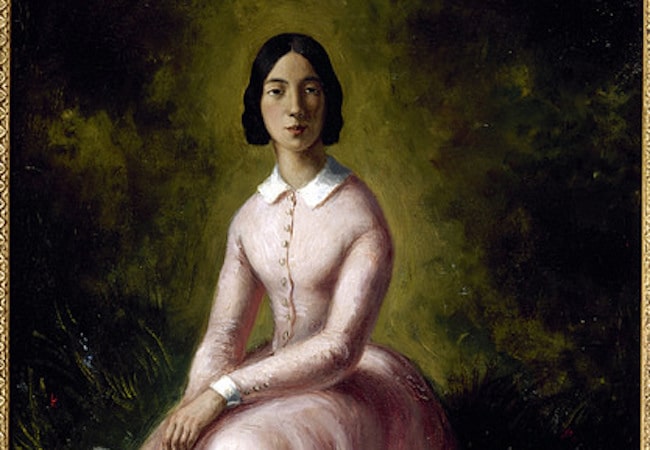

- SUBSCRIBE
- ALREADY SUBSCRIBED?
BECOME A BONJOUR PARIS MEMBER
Gain full access to our collection of over 5,000 articles and bring the City of Light into your life. Just 60 USD per year.
Find out why you should become a member here.
Sign in
Fill in your credentials below.
Pauline Viardot was part of the Spanish Garcia family, four generations of singers and composers who greatly influenced opera and singing in four countries for more than a century. She was a household name throughout Europe and Russia, an artist who helped usher in a new era of operatic singing and composition, writing more than 100 songs, four operettas, and numerous chamber works.
Michèle Ferdinande Pauline Sitches Garcia was born on July 18,1821, in Paris, France. Her father, Manuel, was a Spanish tenor, composer, impresario, and the most renowned European singing teacher in the 19th century. Her mother, Joaquina Sitches, was a Spanish actress and talented soprano. Her elder sister was the legendary contralto Maria Malibran, whose vocal range was considered nothing less than extraordinary. When Maria died at the young age of 28, Pauline was well-prepared to follow in her footsteps.
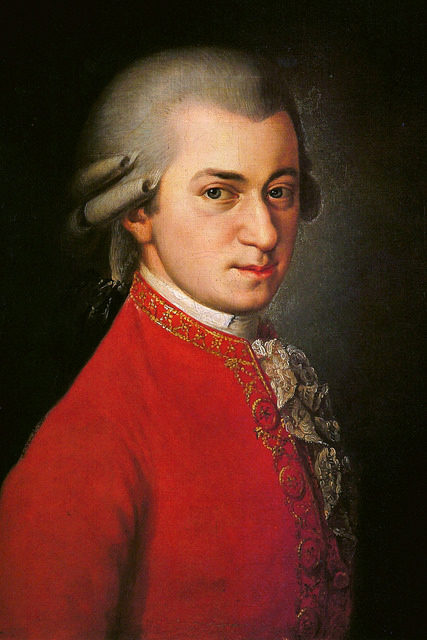
Wolfgang Amadeus Mozart (1756–91) by Barbara Krafft (1764–1825), 1819 Photo: Flickr / Royal Opera House Covent Garden
As a girl Pauline travelled with her family to London and New York City where her father, mother, brother, and sister gave the first performance of Wolfgang Mozart’s Don Giovanni in the United States, as well as six operas by Gioachino Rossini. In New York at that time audiences had only heard Italian operas sung in English, never in the original Italian, nor had they ever seen an authentic, full-length production of one.
But opera wasn’t Pauline’s first love. She dreamed of becoming a professional concert pianist and had taken piano lessons with Franz Liszt, and composition classes with Anton Reicha, the teacher of Liszt and Hector Berlioz, and close friend of Ludwig van Beethoven. She made her concert debut at the age of 15 in Brussels accompanying her brother-in-law, the violinist Charles Auguste de Bériot.

Pixabay
As often is the case, Pauline’s parents had other ideas for her career. Though her piano concert debut was successful, they were adamant she focus her attention on her voice. It was with tremendous regret that she formally abandoned her dream, though she remained an outstanding pianist all her life. The following year at age 16, she made her operatic debut as Desdemona in Rossini’s version of Otello in London. This proved to be the surprise of the season. Despite her somewhat flawed interpretation, she was said to have had an exquisite technique, combined with a remarkable degree of passion for someone so young.
At age 17, Pauline met and was courted by the poet/writer Alfred de Musset. Upon hearing Pauline sing he was smitten, comparing her voice to “…the taste of a wild fruit…Pauline possesses the secret of great artists: before expressing something, she feels it. She does not listen to her voice, but to her heart.” He was the first of many men who fell in love with this charismatic young woman.
However, on the advice of her friend, George Sand, Pauline married the theatre director Louis Viardot, 21 years her senior. Viardot, an author and the director of the Théâtre Italien in Paris, was financially secure and better able to provide for Pauline than de Musset. Their marriage took place on April 18, 1840. He was devoted to her and became her manager. Following her family’s musical heritage, their son, Paul, became a concert violinist, their daughter, Louise Héritte, became a composer and writer, and two other daughters became concert singers.
When she wasn’t performing, Pauline spent a lot of time at George Sand’s home with Sand and her lover, Frédéric Chopin. Chopin advised her on her piano playing, vocal compositions, and arrangements of some of his mazurkas, while she educated him in the nuances of Spanish music.
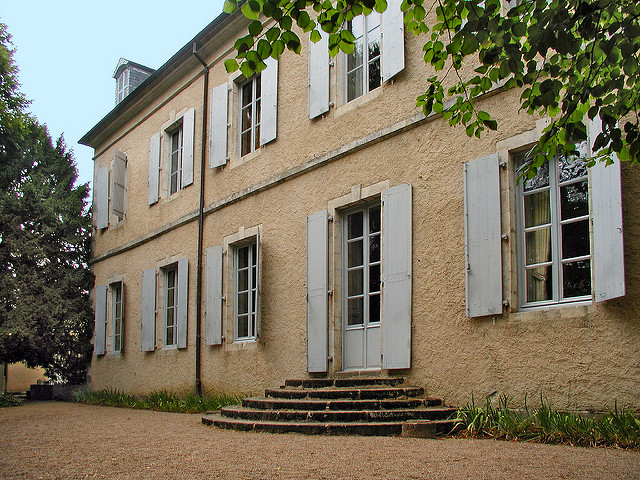
Maison de George Sand à Nohant-Vic (Indre) Photo: Flickr / Daniel Jolivet
Her marriage, however, did not discourage the steady stream of besotted men, among them composers Charles Gounod (she sang the title role in his opera Sapho) and Hector Berlioz, and the Russian novelist, Ivan Turgenev. It was while touring Russia in 1843 that Turgenev fell passionately in love with Pauline after hearing her sing the role of Rosina in The Barber of Seville.
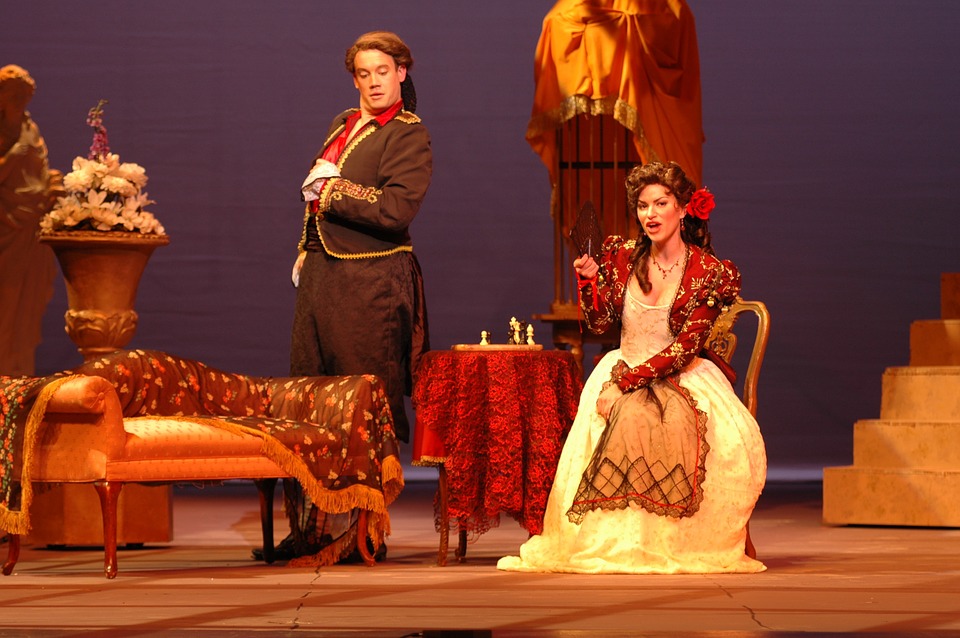
Barber Seville Opera Performance Dupage Theatre. Photo: Pixabay / WikimediaImages
It was the beginning of a lifelong passion for them both and was resolved in an unconventional way, with Turgenev leaving Russia in 1845 and moving in with the Viardots. He treated her four children as his own, and adored her until he died in 1883. She, in turn, critiqued his work and, through her social connections, gave him entree to present Russian literature to the West. The exact status of their relationship and her husband’s involvement is still a matter of debate. Turgenev never married. Before he met Pauline he had an illegitimate daughter with a peasant woman to whose care he later entrusted her.
Renowned for her wide vocal range and her dramatic roles on stage, Pauline’s performances inspired composers such as Chopin, Berlioz, Camille Saint-Saëns who dedicated Samson and Delilah to her, and Giacomo Meyerbeer, for whom she created the role of Fidès in Le Prophète. She arranged instrumental works by Joseph Haydn, Franz Schubert and Johannes Brahms to songs. She sang Mozart’s Requiem at Chopin’s funeral at Église de la Madeleine in Paris on October 30, 1849. She sang the title role of Christophe Gluck’s opera Orphée et Eurydice at Théâtre Lyrique in Paris in November 1859, a production directed by Berlioz, a role she sang over 150 times.
In 1863 at age 42, Pauline retired from the stage. Due to her husband’s public opposition of Emperor Napoleon III, she and her family left France and settled in Baden-Baden, Germany. After Napoléon III’s fall, they returned to France, where she taught at the Paris Conservatory. Until her husband’s and Turgenev’s death in 1883, she presided over a music salon in the Boulevard Saint-Germain.
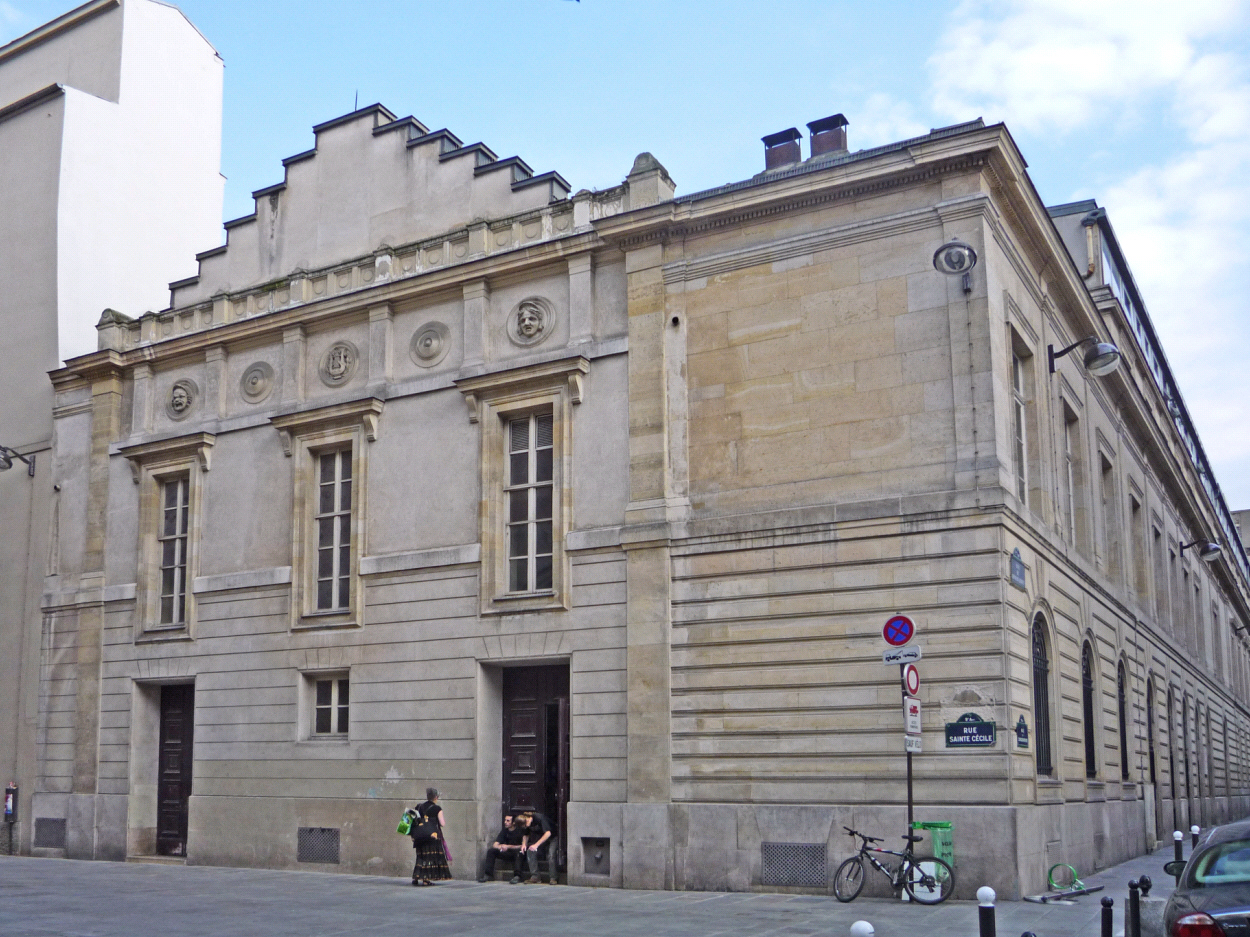
Former Conservatoire building (until 1911) in the 9th arrondissement of Paris, which now houses the CNSAD. Public Domain
In 1855, Pauline purchased Mozart’s original manuscript of Don Giovanni in London. She preserved it in her Paris home, where it was visited by many notable artists, including Rossini, who genuflected after seeing it. Tchaikovsky reputedly said he was “in the presence of divinity”. It was displayed at the Exposition Universelle of 1878, and at the centenary of Don Giovanni’s premiere production in 1887. In 1892 she donated it to the Conservatoire de Paris.

Exposition Universelle, Paris, France, 1889. Photo: Flickr / Photochrom print by Photoglob Zürich, posted by trialsanderrors
Pauline began composing when she was young, but it was never her intention to become a composer. Her musical scores were written mainly as private exercise pieces for her students with the intention of developing their vocal abilities. She did the bulk of her composing after her retirement to Baden-Baden. Her works were of such remarkable quality that Franz Liszt declared, “With Pauline Viardot the world had finally found a woman of genius.”
Pauline’s greatest successes were in highly dramatic roles, and together with her thoughtful interpretations, she rightfully earned her a place in Parisian artistic and intellectual circles. Brahms, Saint-Saëns, Robert Schumann, and Gabriel Fauré all wrote pieces for her. In her later years she taught singing and composed. Her compositions include vocal transcriptions of Chopin’s mazurkas, songs translating Russian texts, and several operettas, including Le Dernier Sorcier (1869), the libretto of which was written by Turgenev.
In 1910 at age 88 Pauline Viardot died. Her body was interred in the Montmartre Cemetery in Paris. Viardot was more than just the greatest diva of the 19th century; she singlehandedly transformed 19th-century opera.
A bust of Pauline Viardot stands in the Musée de la Ville in Baden, Baden, Germany.
The Villa Viardot in Bougival, near Paris, was a gift to the Viardots by Ivan Turgenev in 1874. It is now a museum.
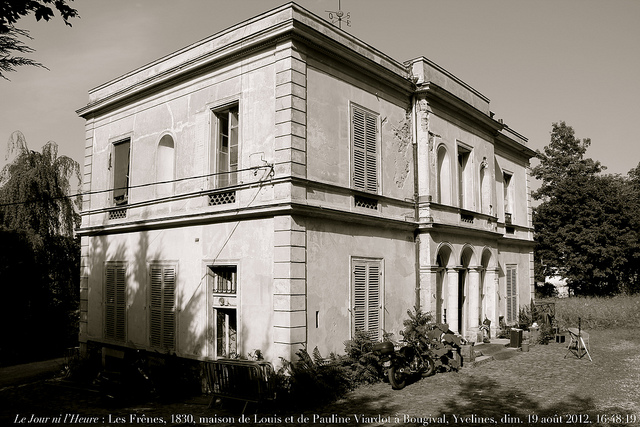
Pauline, 1821-1910, Viardot à Bougival, Yvelines, Île-de-France. Photo: Flickr/ Renaud Camus
More in 19th century, Emperor Napoleon III, Exposition Universelle, Mozart, Opera, Theatre Italien



REPLY